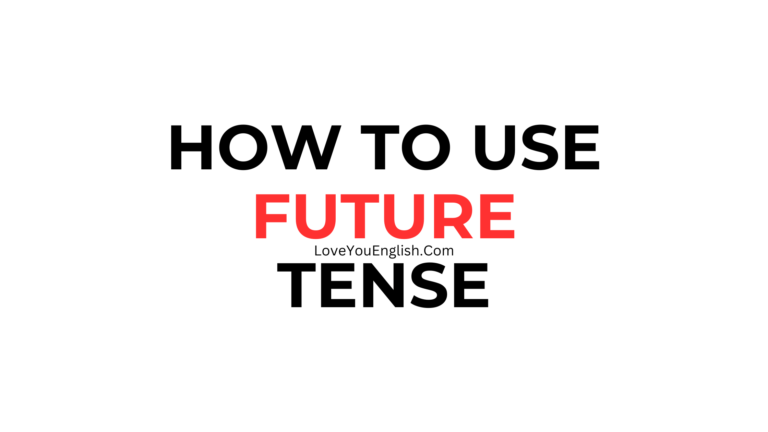Understanding the Differences: “Nonetheless” vs. “Nevertheless”
If you’ve ever paused while writing an email or essay, wondering whether to use “nonetheless” or “nevertheless,” you’re not alone.
These two words trip up even native English speakers because they seem so similar. The good news? Once you understand how they work, you’ll use them with confidence every time.
In this guide, I’ll break down everything you need to know about these transitional words, from their meanings to their subtle differences, complete with plenty of examples you can learn from.
What Do “Nonetheless” and “Nevertheless” Mean?
Let’s start with the basics. Both “nonetheless” and “nevertheless” are transitional adverbs that show contrast or surprise. They help you introduce a statement that seems unexpected given what you just said.
Think of them as sophisticated ways of saying “but” or “however.” They tell your reader: “Here’s something that might surprise you, given what I just mentioned.”
Nonetheless means “in spite of that” or “even so.” It acknowledges a previous point while introducing a contrasting or unexpected result.
Nevertheless carries almost the same meaning: “in spite of that” or “notwithstanding.” It also introduces contrast but often with a slightly more formal tone.
Here’s a simple example to illustrate:
- The weather forecast predicted rain all weekend. Nonetheless, we decided to go camping.
- The weather forecast predicted rain all weekend. Nevertheless, we decided to go camping.
Both sentences work perfectly. Can you see how they both introduce an action that seems surprising given the rainy forecast?
Are They Really Different?
Here’s where it gets interesting. For practical purposes, “nonetheless” and “nevertheless” are interchangeable in most situations. You can swap one for the other in nearly any sentence without changing the meaning.
However, there are some subtle distinctions that advanced English learners and writers might appreciate:
Formality Level
Nevertheless tends to sound slightly more formal and traditional. You’ll often find it in academic writing, legal documents, and formal speeches. It carries a weight and seriousness that makes it perfect for professional contexts.
Nonetheless feels a touch more modern and conversational, though it’s still quite formal. Many contemporary writers prefer it because it flows more naturally in everyday professional writing.
Emphasis and Tone
Nevertheless often emphasizes the contrast more strongly. It signals that what follows is particularly noteworthy despite the obstacle mentioned.
Nonetheless can feel slightly softer and more matter-of-fact. It acknowledges the contrast without drawing as much attention to it.
Consider these examples:
- The surgery was risky and expensive. Nevertheless, it was her only hope for recovery. (Strong emphasis on determination)
- The movie received mixed reviews. Nonetheless, it became a box office hit. (Matter-of-fact observation)
How to Use These Words Correctly
Now that you understand what they mean, let’s look at how to use them properly in your writing.
Placement in Sentences
Both words typically appear at the beginning or middle of a sentence, and they’re almost always followed by a comma.
Beginning of sentence:
- The project faced numerous delays. Nevertheless, the team completed it on time.
- She had no prior experience. Nonetheless, she impressed everyone at the interview.
Middle of sentence:
- The project faced numerous delays; the team, nevertheless, completed it on time.
- She had no prior experience but, nonetheless, impressed everyone at the interview.
When you place them at the beginning, you’re creating two separate sentences. The first sentence presents a situation, and the second introduces the contrasting result.
When you use them in the middle, you’re connecting ideas within a single sentence, which can make your writing flow more smoothly.
Punctuation Rules
Getting the punctuation right is crucial for clarity:
When starting a sentence: Place a comma immediately after the word.
- Nevertheless, we continued with our plans.
- Nonetheless, the results were impressive.
When in the middle: Use commas on both sides to set it off from the rest of the sentence.
- The plan, nevertheless, succeeded beyond expectations.
- We decided, nonetheless, to give it another try.
After a semicolon: When you use a semicolon to connect two related sentences, these words can follow the semicolon with a comma after them.
- The road was blocked; nevertheless, we found an alternative route.
- The evidence was circumstantial; nonetheless, the jury reached a verdict.
Common Mistakes to Avoid
Even advanced learners sometimes stumble with these words. Here are the most common errors and how to avoid them:
Mistake 1: Forgetting the Comma
Incorrect: Nevertheless the team persevered. Correct: Nevertheless, the team persevered.
The comma isn’t optional. It helps your reader pause and understand the relationship between ideas.
Mistake 2: Using Them Too Frequently
While these words are useful, overusing them makes your writing feel stiff and repetitive. If you find yourself using “nevertheless” or “nonetheless” in every other paragraph, vary your transitions with words like “however,” “yet,” “still,” or “even so.”
Mistake 3: Placing Them Awkwardly
Incorrect: The weather nevertheless was perfect. Correct: The weather, nevertheless, was perfect. Better: Nevertheless, the weather was perfect.
When interrupting a sentence, make sure the placement sounds natural when you read it aloud.
Mistake 4: Confusing Them with “Therefore”
Remember, “nonetheless” and “nevertheless” show contrast, not cause and effect. Don’t use them when you mean “therefore” or “thus.”
Incorrect: He studied hard; nonetheless, he passed the exam. (This suggests surprise that he passed) Correct: He studied hard; therefore, he passed the exam.
Practical Tips for English Learners
For Beginners
Start by mastering these words in simple sentence structures. Practice using them at the beginning of sentences with a comma before moving to more complex placements.
Try this exercise: Take a paragraph you’ve written and identify places where you used “but” or “however.” See if replacing them with “nonetheless” or “nevertheless” makes your writing sound more sophisticated.
For Advanced Learners
Focus on choosing the right word for the context. Ask yourself:
- Am I writing formally or casually?
- Do I want to emphasize the contrast strongly?
- Does the sentence flow better with one word over the other?
Read professional articles and notice how experienced writers use these transitions. Pay attention to when they choose “nevertheless” versus “nonetheless” and try to identify the subtle reasons behind their choices.
Real-World Examples from Different Contexts
Academic Writing
“Previous studies suggested a strong correlation. Nevertheless, our research revealed several important exceptions.”
Business Communication
“The quarterly profits declined slightly. Nonetheless, the company remains well-positioned for long-term growth.”
Casual Writing
“I’m not a morning person. Nevertheless, I’ve learned to appreciate early sunrise walks.”
Creative Writing
“The castle stood in ruins. Nonetheless, something about its crumbling walls spoke of enduring majesty.”
When to Choose Alternative Words
Sometimes, simpler alternatives work better, especially in casual conversation or when writing for a general audience:
- However is less formal and works well in everyday writing
- Yet is shorter and punchier
- Still feels conversational and natural
- Even so is clear and straightforward
Save “nonetheless” and “nevertheless” for situations where you want your writing to sound polished and professional.
Final Thoughts
Mastering “nonetheless” and “nevertheless” will elevate your English writing from good to excellent. While they’re nearly identical in meaning, understanding their subtle differences helps you choose the right word for the right context.
Remember: both words introduce contrast or unexpected results, they’re interchangeable in most situations, they always need a comma when starting or interrupting a sentence, and “nevertheless” tends to be slightly more formal.
The best way to become comfortable with these words is to practice. Start incorporating them into your writing, read them in context, and soon you’ll develop an intuitive sense of when each one feels right.
Keep writing, keep learning, and don’t be afraid to experiment with these powerful transitional words. Your English communication skills will thank you for it.
Explore more English grammar topics here:
- Present Perfect vs Past Simple: Key Differences with Examples
- Emphatic Do: What It Is and How to Use It in English Sentences
- What’s the Difference Between SHALL and WILL
- Transitive and Intransitive Verbs Explained
- Common Mistakes in Tense Usage






